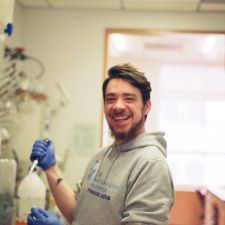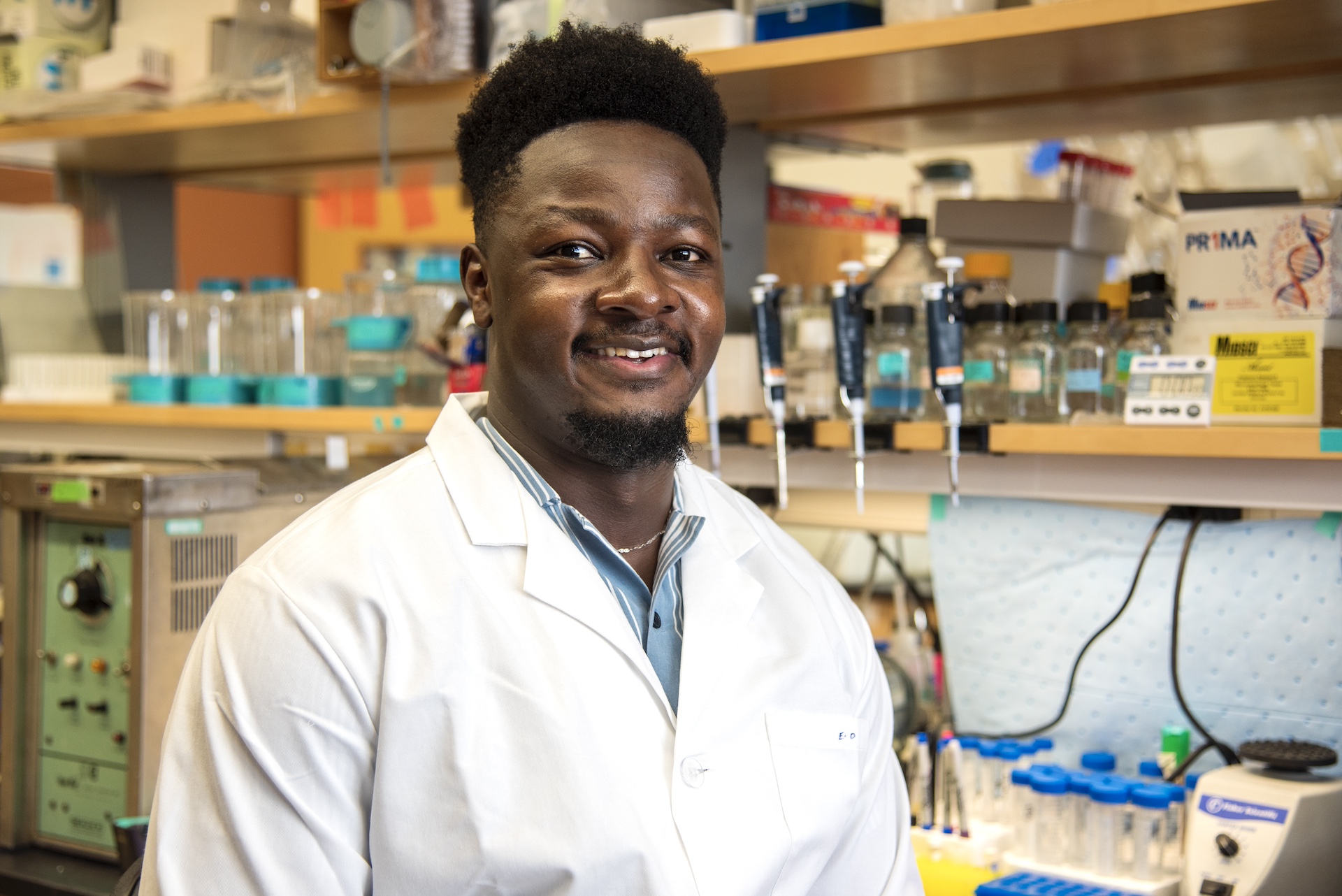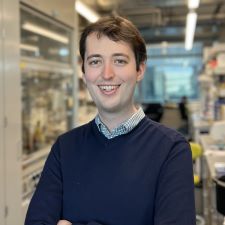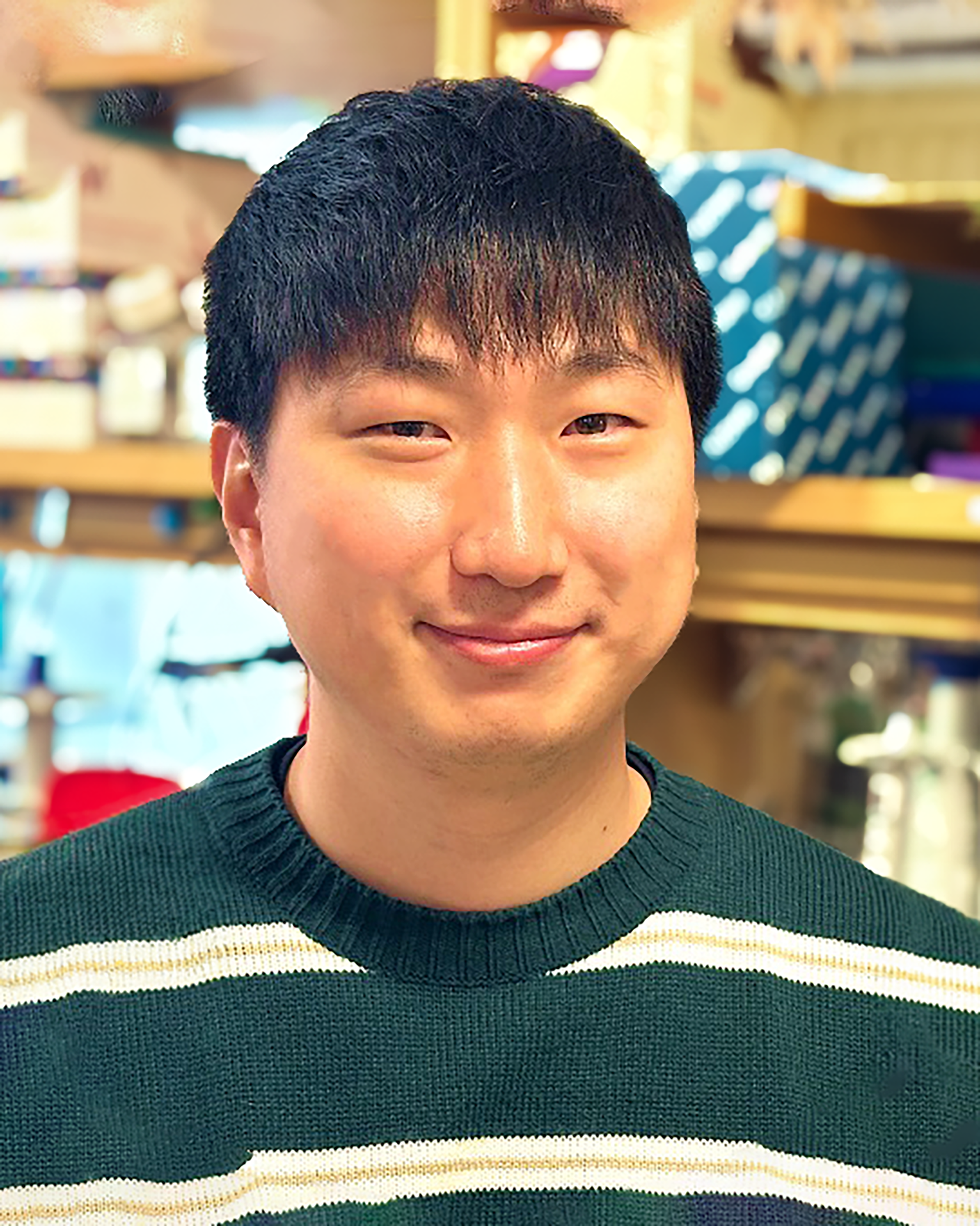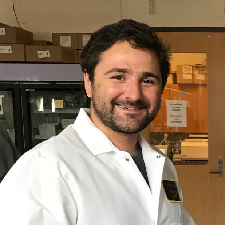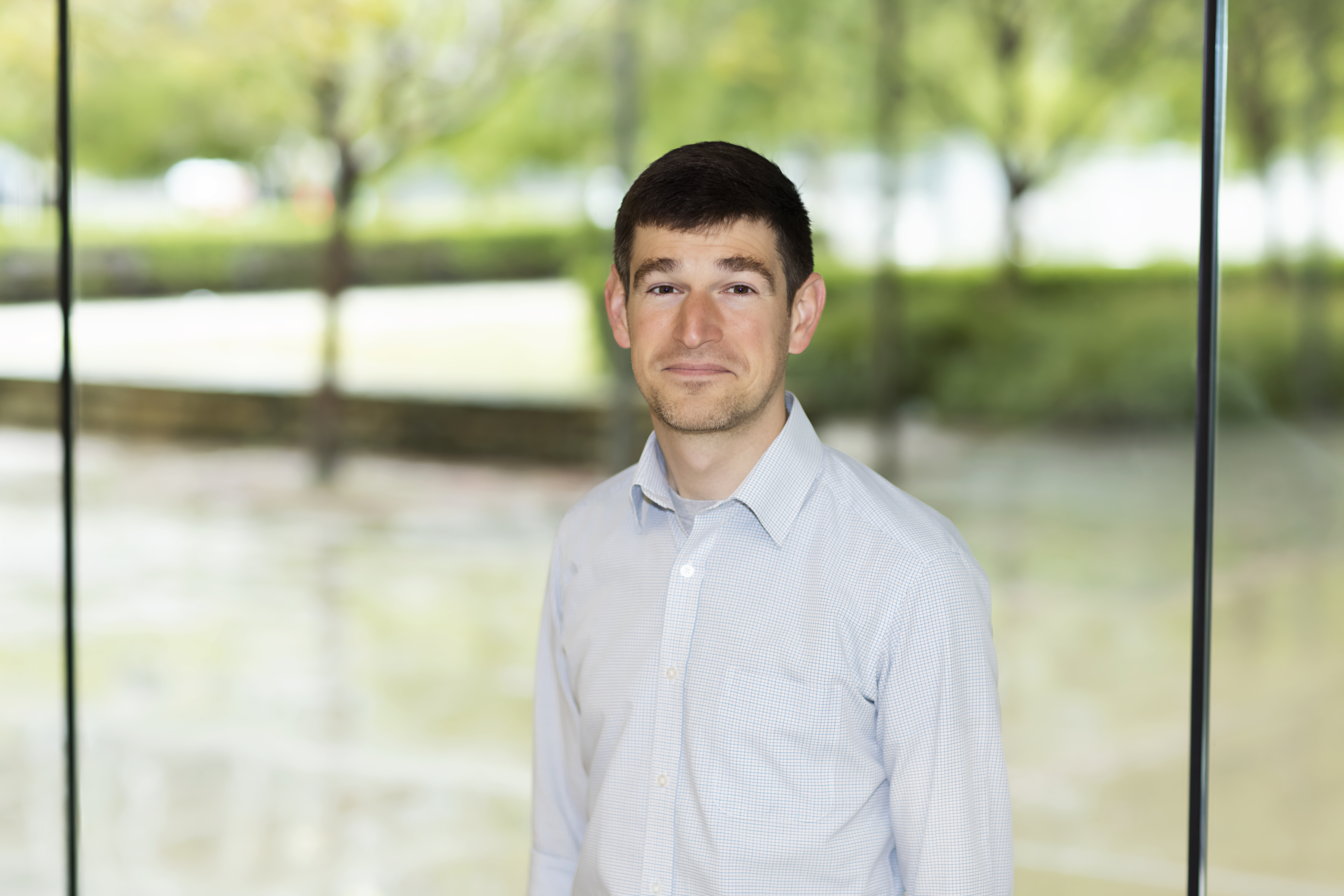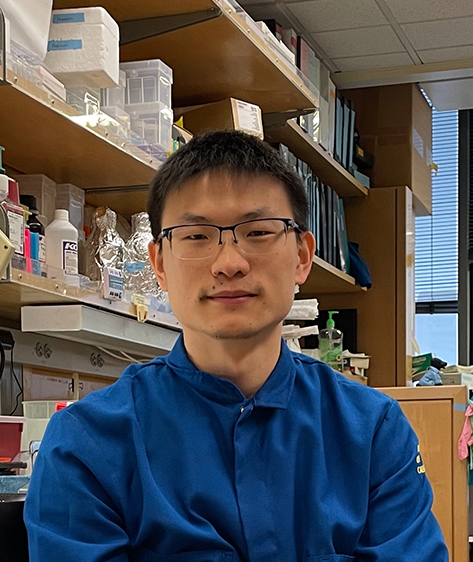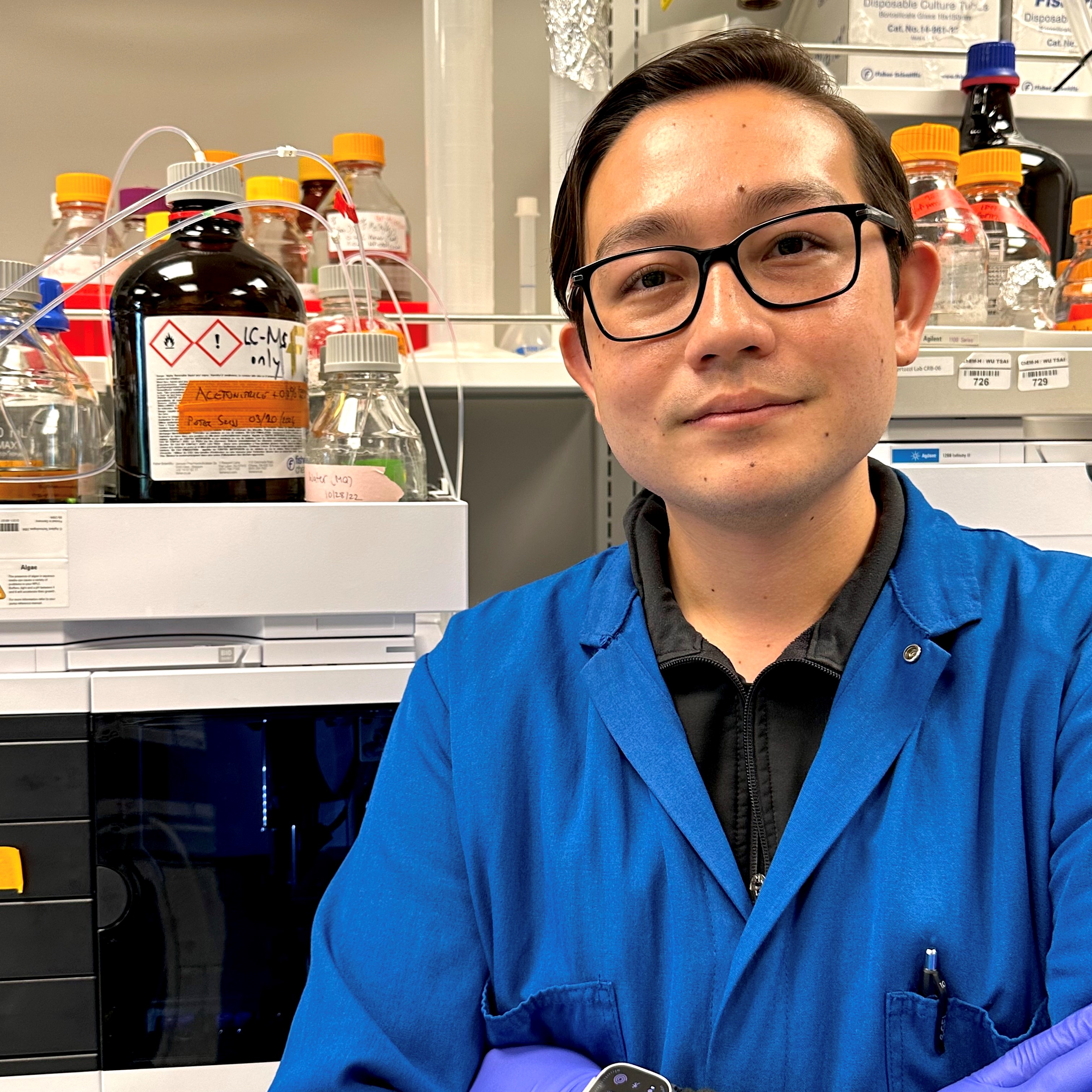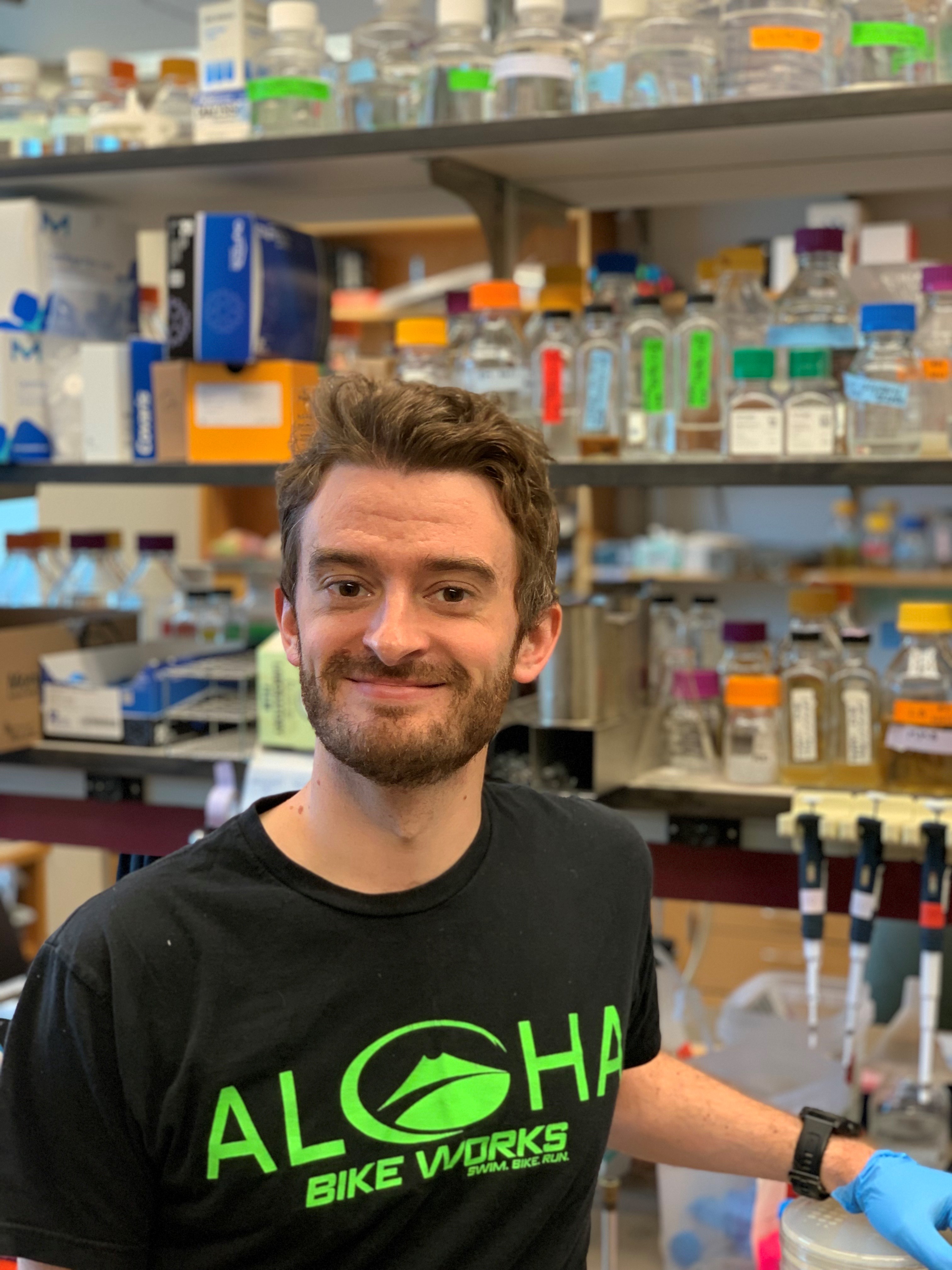As different tissues in the body form, cells need to undergo a complex, precisely timed series of differentiation programs to form specialized cell types. Importantly, premature or delayed initiation of these programs can contribute to cancer formation. However, how timing of cellular differentiation is encoded on a molecular level is poorly understood. Dr. Noetzel is using the protozoan parasite Cryptosporidium parvum as a simplified model of eukaryotic differentiation. After infecting the intestinal lining of a mammalian host, these single-celled parasites undergo exactly three rounds of asexual replication before collectively differentiating into gametes. These studies will investigate how this hard-wired, intrinsic developmental timer is encoded. In his project, Dr. Noetzel aims to understand how these parasites "count to three," which will inform our basic understanding of how eukaryotic cells keep track of time during development. Dr. Noetzel received his PhD from the Weill Cornell Medical College, Cornell University, New York and his MSc and BSc from Georg-August-University, Göttingen.
Project title: "How do eukaryotic cells count cell cycles? Intrinsic regulation of quantized asexual replication cycles and commitment to sexual differentiation in the protozoan parasite Cryptosporidium parvum"
Institution: University of Pennsylvania
Award Program: Fellow
Cancer Type: All Cancers
Research Area: Microbiology
Dr. Omollo [Robert A. Swanson Family Fellow] studies how bacteria have evolved to achieve precise gene expression using strategically placed transcription terminators. In cancer cells, specific mutations lead to uncontrolled transcription of certain genes, resulting in elevated gene expression that fuels cancer progression. Using bacteria as a model, Dr. Omollo aims to uncover how RNA polymerases in cancer cells evade termination signals to maintain high levels of gene expression, encouraging cancer spread. Dr. Omollo received his PhD from University of Wisconsin-Madison, Madison and his BS from Michigan State University, Lansing.
Project title: "Elucidating what determines the strength of bacterial transcription terminators"
Institution: Massachusetts Institute of Technology
Named Award: Robert A. Swanson Family Fellow
Award Program: Fellow
Cancer Type: All Cancers
Research Area: Computational Biology
Chromatin remodelers are complex protein machines responsible for packaging DNA and regulating gene expression. Their dysfunction is strongly implicated in cancer. For example, certain types of sarcoma and ovarian cancer are driven by mutations in a chromatin remodeler called BAF. Combining experiments with theoretical work, Dr. Owen’s research aims to understand how remodelers recognize their target sites in the cell’s nucleus. By expanding our understanding of chromatin remodeling, the findings of this research will provide the groundwork for more effective cancer treatments—suggesting how drugs might target chromatin remodelers—as well as enhance our understanding of how existing drugs that target remodeler-adjacent mechanisms might work.
A central aim of this project is the development of new, quantitative models to explain the behavior of chromatin remodelers seen in experiments. Dr. Owen will achieve this by successive rounds of passing between theory and experiments repeatedly—measuring, modeling, then measuring again. For comparison to experiments, model predictions will be extracted computationally (e.g., numerically solving ODEs, or by exact stochastic simulation using Gillespie’s algorithm) or analytically (e.g., by the King-Altman procedure, and variants), as appropriate.
Project title: "The biophysics of substrate recognition in chromatin remodeling"
Institution: Princeton University
Award Program: Quantitative Biology Fellow
Cancer Type: Gynecological, Sarcoma, All Cancers
Research Area: Chromatin Biology
One way cancer cells evade immune attack is by constructing a thin material barrier called the glycocalyx on their surface to evade detection and destruction by surveilling immune cells. Tiny changes in the glycocalyx thickness, as small as 10 nanometers, can affect the anti-tumor activity of immune cells, including CAR T cells. Dr. Park’s [Merck Fellow] goal is to develop strategies to endow CAR T cells with the ability to penetrate the glycocalyx barrier in solid tumors such as breast cancer and glioblastoma. These strategies will increase the effectiveness of CAR-T cell therapy against solid tumors by overcoming a significant mechanism of immune cell evasion. Dr. Park received his PhD from Cornell University, Ithaca and his BS from Korea Advanced Institute of Science and Technology, Daejeon.
Project title: "Engineering novel CAR T cells targeting cancer glycocalyx barrier"
Institution: Massachusetts General Hospital
Named Award: Merck Fellow
Award Program: Fellow
Cancer Type: Brain, Breast, All Cancers
Research Area: Tumor Immunology
Dr. Parker [HHMI Fellow] studies the role of molecular assemblies known as stress granules that form when cells are exposed to stressful conditions. The assembly of stress granules upon cellular insult is thought to regulate gene expression and modulate cell survival. Notably, stress granules are present in various cancers and many chemotherapeutic treatments lead to the formation of stress granules. Dr. Parker aims to determine the mechanisms regulating stress granule assembly and disassembly to understand how stress granule formation supports the development of cancer and chemotherapy-resistant tumors. This research has the potential to discover novel targets to treat cancers as well as sensitize chemotherapy-resistant cancers to existing treatments. Dr. Parker received his PhD from Colorado State University and his BS from the University of Oregon.
Project title: "Stress granule regulators and their roles in cancer progression"
Institution: University of Colorado Boulder
Named Award: HHMI Fellow
Award Program: Fellow
Cancer Type: All Cancers
Research Area: Biochemistry
Philip T. Pauerstein, MD, PhD
Leukemia is a cancer of the immune system and is a major cause of death from cancer in children and young adults. Chimeric antigen receptor (CAR) T cell therapy, which involves genetic engineering of a cancer patient’s own immune system cells to fight cancer, has demonstrated curative potential. Despite excellent initial responses to treatment, however, leukemia recurs in up to half of pediatric leukemia patients after CAR T treatment. A major cause of treatment failure is that CAR T cells do not attach to cancer cells as strongly as natural T cells do to their targets, and this limits their ability to find and kill cancer cells. Dr. Pauerstein’s research is attempting to improve CAR T cell sensitivity to cancer cells using synthetic cell adhesion molecules, a type of molecular glue between two cells. Engineering adhesion into CAR T cells should build a synthetic immune synapse that can help improve cell-based treatments for leukemia and eventually other cancers. Dr. Pauerstein received his MD, PhD from Stanford University, Stanford and his BA from Rice University, Houston.
Project title: "Enhancing immune synapse formation with synthetic adhesion to overcome chimeric antigen receptor-T cell resistance in pediatric B cell malignancies"
Institution: University of California, San Francisco
Award Program: St. Jude Fellow
Cancer Type: Blood, Pediatric, All Cancers
Research Area: Immunotherapy
Accumulating evidence shows that specialized structures of white blood cells (lymphocytes), named tertiary lymphoid organs (TLOs), can form inside tumors and play a crucial role in fighting cancer progression. Unlocking the formation and functions of TLOs holds great promise for advancing cancer immunotherapy, but studying TLOs remains challenging due to the substantial disparities between humans and animal models. To address this, Dr. Peng [Connie and Bob Lurie Fellow] will leverage single-cell sequencing data and high-throughput screening methods to investigate a key initiator of TLO formation in human tumors. He further plans to develop innovative genetic models that enable the study of TLOs in a human-specific context within living organisms. By unraveling the intricacies of TLO biology, Dr. Peng aims to uncover novel therapies that can augment cancer immunotherapy and enhance treatment outcomes across various cancer types. Dr. Peng received his PhD from Baylor College of Medicine, Houston and his BS from Zhejiang University, Hangzhou, Zhejiang.
Project title: "Humanize CXCL13 expression in mouse to understand lymphoid neogenesis in cancer"
Institution: University of California, San Francisco
Named Award: Connie and Bob Lurie Fellow
Award Program: Fellow
Cancer Type: All Cancers
Research Area: Basic Immunology
Cancer immunotherapies have shown remarkable benefits, but many tumors remain unresponsive to existing treatments. The mechanisms cancer cells use to evade immune responses during treatment remain largely unknown. Altered cell surface glycosylation, the process of attaching sugars to cell surface biomolecules, is a hallmark of many human cancers. The interaction between cell surface glycoproteins on immune cells with cancer cells represents a major axis of immune evasion and plays a vital role in how cancer cells suppress immune responses during cancer treatment. Dr. Roberts’ [Connie and Bob Lurie Fellow] research aims to molecularly define cell surface glycosylation and understand the role of glycosylation in driving cancer immunosuppression. This knowledge will be leveraged to illuminate the underlying mechanisms of tumor immune evasion and enable next-generation classes of cancer immunotherapies. Dr. Roberts received his PhD from University of Wisconsin–Madison, Madison and his BS from University of California, San Diego.
Project title: "Defining the molecular landscape and native interactome of the Siglec-sialoglycan axis in disease"
Institution: Stanford University
Named Award: Connie and Bob Lurie Fellow
Award Program: Fellow
Cancer Type: All Cancers
Research Area: Chemical Biology
Bacteria have diverse immune systems to defend themselves against viral invaders, many of which use molecular mechanisms also seen in mammalian immune systems. Dr. Roney [HHMI Fellow] studies how bacterial immune systems detect virally compromised cells, and how viruses undermine immune systems to prevent the elimination of virally compromised cells from the population. The goal of his research is to uncover novel mechanisms and principles of immune systems that are found across domains of life. The discoveries resulting from this work will broaden our understanding of how immune systems detect and eliminate compromised cells, like cancer cells, and could help guide development of new immunotherapies. Dr. Roney received his PhD from Harvard University, Cambridge and his MS and BS from University of Ottawa, Ottawa.
Project title: "Discovery and characterization of bacteriophage effectors of bacterial immune systems"
Institution: Massachusetts Institute of Technology
Named Award: HHMI Fellow
Award Program: Fellow
Cancer Type: All Cancers
Research Area: Microbiology
Normally, epithelial tissues, which cover all external body surfaces and line internal cavities, expel unwanted cells to maintain health in a process known as cell extrusion. However, some cancer cells, particularly those with the common RasV12 mutation, manage to avoid extrusion. Using Drosophila (fruit flies) as a model, Dr. Sakai [Rhee Family Fellow] will explore how RasV12-mutant cells manipulate neighboring cells to avoid extrusion. Understanding this process could lead to new ways to prevent cancer cells from escaping the epithelial defense, offering potential new treatments. Dr. Sakai received his PhD and BS from Nagoya University, Nagoya.
Project title: "How do tumors evade cell extrusion?"
Institution: University of California, Berkeley
Named Award: Rhee Family Fellow
Award Program: Fellow
Cancer Type: All Cancers
Research Area: Cell Biology

